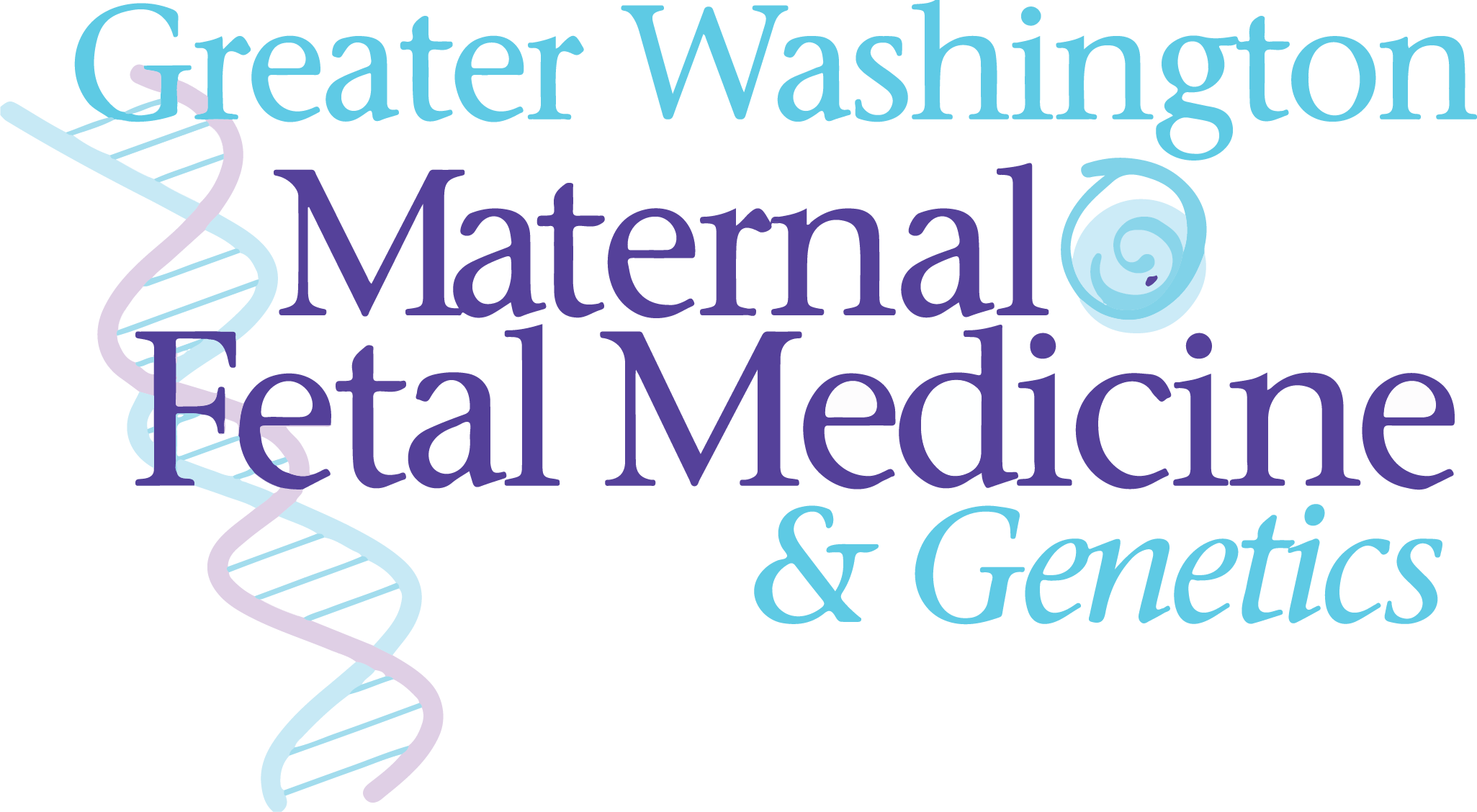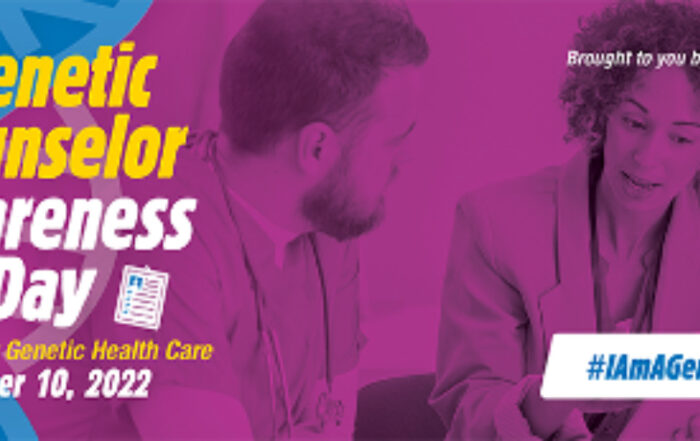My Pregnancy Received a Genetic Diagnosis, Now What?
February 3, 2022

*TRIGGER WARNING: This article discusses terminating pregnancy as a personal choice and does NOT include medical details or termination clinic information.
Positive screening result versus genetic diagnosis:
All pregnancies are offered routine screening by ultrasound sonography and blood-based screening. Some of these screens are able to detect pregnancies at increased risk for certain genetic conditions and birth defects, both of which can occur in pregnancies with or without any family history of the conditions.
Screening results may be positive (high risk), negative (low risk), or indeterminant (results unable to be interpreted due to sample or laboratory issues). A positive screen on its own suggests increased risk, not a diagnosis. Positive biochemical and/or genetic screening results may be considered together with ultrasound findings interpret a clinical diagnosis. This previous post also addresses the difference between screening and diagnosis.
Pregnancies with high-risk blood screening results or ultrasound findings are offered diagnostic genetic testing. Diagnostic testing is invasive as it can only be performed on a placental sample in the first trimester or an amniotic fluid sample in the second trimester and later. Placental samples are collected by a procedure called chorionic villi sampling (CVS). Amniotic fluid samples are collected by a procedure called amniocentesis. These procedures are always optional as there is a procedure-related risk of miscarriage; approximately 1 out of 500 (0.5%, or a half percent) women who choose to proceed with CVS experience a miscarriage and approximately 1 out of 1,000 (0.1%, or a tenth of a percent) women who choose an amniocentesis experience a miscarriage. These risks are reduced when performed at an experienced center who performs these procedures regularly and risks are further reduced by resting the first two days after the procedure. Specific details about the procedures and aftercare are available at an appointment with our MFMs and genetic counselors.
Diagnostic testing is also available for all pregnancies with normal screening results for reassurance. Maternal-blood based screening results can have false positives (positive report, but unaffected fetus) and false negatives (negative report but affected fetus), which is not always clear at the time of receiving results from screening.
Decision-making after a confirmed genetic diagnosis:
If your pregnancy has been confirmed to be affected by a genetic condition after CVS or amniocentesis, there may be many decisions you are suddenly being faced with that you may not have expected. It’s OK to feel overwhelmed, frustrated, angry, confused, grief, or to be in shock and feel as though everything is numb or distant. These are all natural reactions! If you feel confused or guilty, please ask your provider questions or ask to speak with a genetic counselor if you have not already had the opportunity to do so. A genetic counselor is specially trained in not just explaining genetic condition symptoms and features, but also in locating educational, medical, and community support resources for families. If your provider is not sure where your nearest genetic counselor is available, check this site.
Some decisions that families with a diagnosed pregnancy may need to consider are:
-Whether to continue or terminate the pregnancy
-Which specialists they can meet with before birth
-Whether they may need to give birth at a hospital with a neonatal intensive care unit
-If the pregnancy is expected to be medically complex or fragile at the time of birth, would the family prefer comfort care or medical interventions
These decisions are very personal and often are not easy.
Many families find learning about the condition helpful in their decision-making or other birth preparations. While the internet is a wonderful source of information, not all sources are medically accurate or current and a genetic counselor or other genetics specialist can help locate reliable information. Learning how the condition occurs is important as a genetic diagnosis is often a surprise. Some genetic conditions can occur brand new in a pregnancy while others are passed on from parent to child, even when the parent is healthy. In either case, no parent is able to choose the genetic information passed on to a pregnancy.
Understanding the condition, such as which organs are likely to be affected (e.g. brain, heart, skin, eyes, etc) and how severely they are affected can make a condition seem more “mild” or “manageable” versus “severe”. “Mild to moderate” intellectual disability in individuals with Down syndrome can mean some individuals need 24 hour supervision and help with self-care while other individuals live independently and work, but the shared genetic cause of Down syndrome is the same. Most genetic conditions have a spectrum of possible symptoms and features. A “high likelihood of heart defects” in Noonan syndrome can mean no or mild heart defects or significant heart defects that have a high risk of sudden death without treatment. A medically accurate source of information is crucial since a known genetic diagnosis cannot always predict which associated symptoms will be present in an affected individual, or how whether the symptoms will be mild or severe.
Offering accurate information about both the treated and untreated outcomes of a condition is important. An example may be learning that your pregnancy has a condition which causes deafness. For a family with hearing parents who are musicians, this may feel like a devastating diagnosis. The parents feel they will not be able to fully share their passions with their child the way they originally imagined. This family may choose to terminate the affected pregnancy based on the initial diagnosis. The family’s choice may be different if learning more about the condition may reveal that there are treatment options that can reduce hearing loss or even supplement remaining hearing ability with hearing aids or cochlear implants. Meeting with families who are part of the Deaf community may help the expecting parents adjust their expectations and even become excited about the culture and community their child can be a part of, including the Deaf music culture.
For other families, sadly, learning more about their pregnancy’s diagnosis comes with the realization that only supportive care may be available. Supportive care, sometimes called comfort care or hospice, is intended to alleviate pain and discomfort without prolonging life. Not all conditions have treatment available that can prevent or alleviate all symptoms or prevent an early death. Knowing what to expect for their child’s long-term health is a great comfort in many parents’ pregnancy and post-natal decision-making. Specialists who treat that condition, or the major symptoms of the condition, can help families who continue pregnancy decide which types of treatments or interventions are right for them.
Some families choose to terminate affected pregnancies after a genetic diagnosis whether treatment is available or not. Limiting pain and suffering, for both the fetus and the parents, is an expression of love and an incredibly hard decision. Termination options and availability, including gestational age limitations, vary by state and individual practice. GWMFM does not perform terminations, but we can provide contact information for termination clinics to our patients upon request and fully respect every family’s decision.
There are additional non-medical factors for families that may not be obvious at the time of a prenatal genetic diagnosis such as the financial cost of raising a child with a medically complex condition, potential maternal health complications from certain prenatal diagnoses, the impact a medically complex or intellectually disabled child can have on a family’s existing relationships, whether both parents will be able to continue their current career paths, whether the affected child will receive an appropriate education and/or daily care if or when the parents are unable to do so, and many more long-term effects. All of these factors impact each family differently.
Support after the diagnosis or termination of an affected pregnancy:
First of all, you are NOT ALONE. Many individuals and families struggle to feel comfortable discussing medical conditions, even with their medical providers and closest loved ones. Medical issues often feel isolating to those affected. Diagnosis during a pregnancy feels perhaps even more isolating as there is no outward sign that baby’s health or development are not as expected.
There are counselors who specialize in therapy for parents who have experienced a prenatal diagnosis or unexpected pregnancy outcome. Ask your OB or MFM for local resources if you’re struggling, or ask your current therapist if they know someone who specializes in prenatal loss.
If you are religious, your faith leader may also be able to provide spiritual guidance and comfort in this difficult time.
Online peer-to-peer resources are also available but the wrong resource can be upsetting for some families. A forum for families who continued an affected pregnancy and now share stories about that infant at home is not the appropriate support for a family who are terminating a highly desired pregnancy with that condition. The same support group for terminating a wanted pregnancy is not appropriate to give a family who has expressed that they do not consider termination as an option. Ask your genetics provider for online resources intended for families with similar diagnoses and goals.
Information is only part of a diagnosis conversation:
If you have questions after a genetic diagnosis, ask your provider for more information. You may want to ask to speak with another specialist or genetic counselor. Hopefully, your provider checks in with you about your family’s goals and whether the pregnancy diagnosis information changes your goals, but also whether you are needing additional resources. Patient-centered care is a process, not just a lab report.




